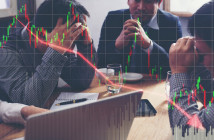Inflation in the U.S. rose to 9.1% in June, the highest since November 1981, and a major leap from 8.6% in May.
That historic rise now has retailers making difficult decisions between raising prices and losing customers or maintaining prices and losing profits.
“With inflationary concerns, if it costs more to produce that good, it’s going to cost the retailer more to buy it from the manufacturer. And then the retailer has to figure out how much of that can I pass on to my customer,” said Lynn Whitmore, managing director for Wells Fargo Commercial Capital.
Retailers have had to manage rising labor and material costs, as well as supply chain interruptions, while maintaining business sustainability. As inflation persists at a high level, retailers could see decreasing sales and possibly a recession.
How does inflation affect the retail industry?
Retailers were able to absorb some of the rising costs at the end of last year as many customers purchased goods before the heavily discounted holiday season, said Rob Garf, vice president and general manager for retail at Salesforce.
That gain capitalized on customers’ fear of limited inventory and allowed retailers to bank higher profits. But he said retailers probably will be less lucky this year because of discount pressure.
After the peak of the pandemic, many retailers are holding too much inventory in certain categories, which are expensive to keep in storage. And consumers are shifting loyalty and looking for lower prices and a better shopping experience, Garf added.
“There’s going to be earlier discounts, which will really hit the retailers,” Garf said. “The consumers are feeling the pinch in their wallets on essentials like gas, food, household items, and therefore they’re questioning some of the discretionary spending.”
Inflationary pressures also will continue to squeeze retailer margins, particularly if the rate of inflation keeps climbing.
“For retailers … inflation plays a role as well, because as inventory ages, and the cost of that inventory increases, it costs more money for the retailers to keep that on their books,” Garf said.
During high inflation, consumers could take money from their savings to supplement the decrease in their real income, said Mark Zandi, chief economist of Moody’s Analytics.
But if inflation remains high, savings could be exhausted and people may spend less, which could push the economy into a recession. Increased interest rates from the Federal Reserve designed to counter high inflation could also lead to a recession.
What could a recession mean for retail?
If the country goes into a recession, consumers will reduce spending, and retailers will see decreased sales.
Whitmore said she believes a recession could have a correction effect on retailers, meaning that while some retailers would declare bankruptcy, financially healthy retailers would survive the downturn.
Zandi said retailers did well during the pandemic as people stayed home and bought various retail goods, from furniture to electronic devices. Now, however, retailers will face challenging financial conditions if the nation enters a recession later this year or in early 2023.
“It’s those retail goods that I bought a lot of during the pandemic that I’m really going to cut back on in the recession,” Zandi said. “Even if we don’t go into recession, retailers are going to have a hard time.”



